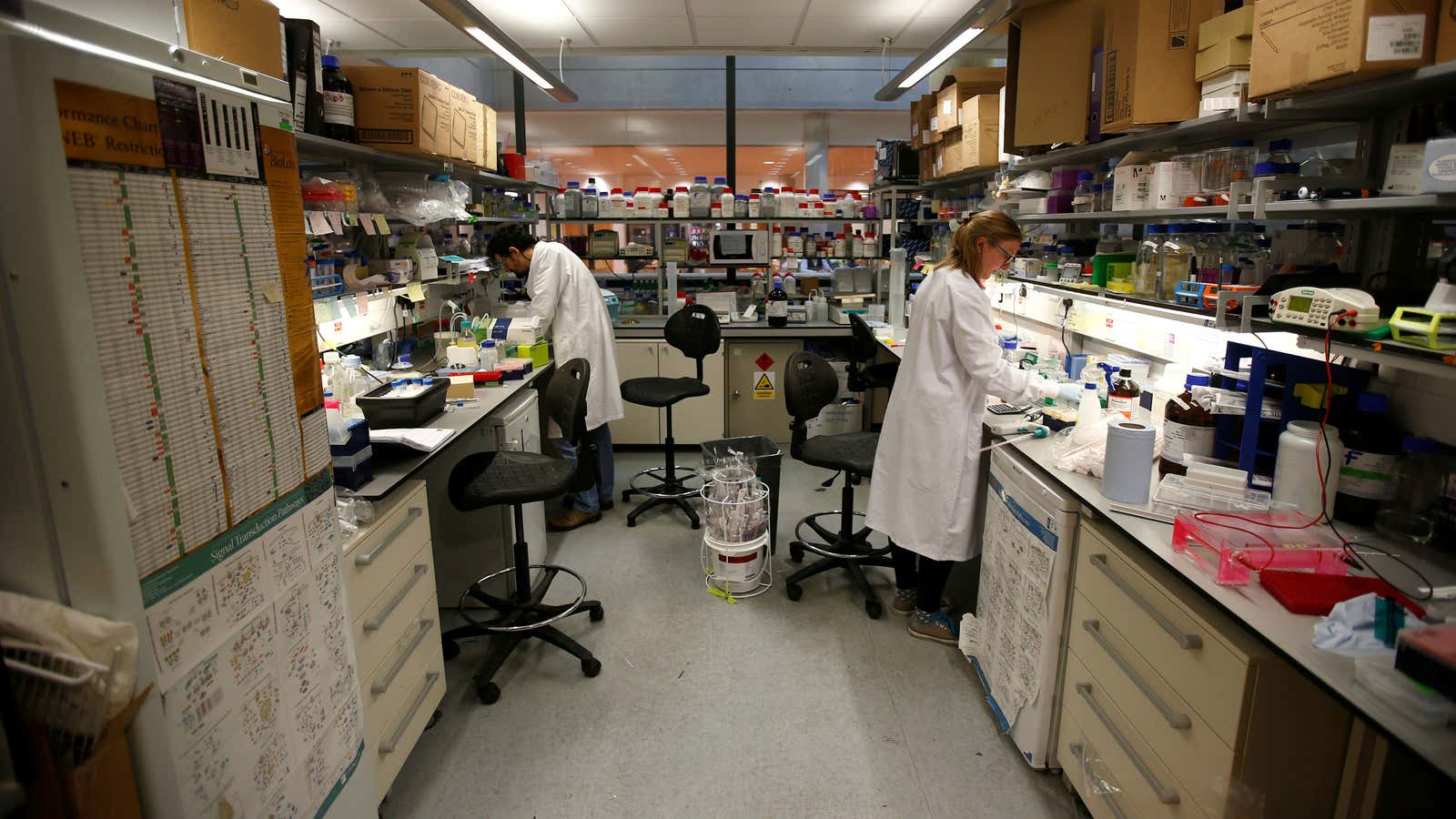Fernanda De Felice, a biochemist studying Alzheimer’s disease at the Federal University of Rio de Janeiro, never wanted to move to Canada. But because of budget cuts from her primary source of funding, the Rio de Janeiro State Foundation to Support Research (FAPERJ), she doesn’t have any other option. “Staying in Brazil would mean the end of my career,” she told Science. She’s packing her bags for Queen’s University in Kingston in March.
De Felice’s story is not unique in Brazil. Federal funding for research has been dwindling in recent years (paywall), and the FAPERJ is broke: over the past two years, it’s discontinued funding for almost 3,700 projects and owes close to $150 million to scientists in grants it has promised them. Another state funding agency, the São Paulo State Foundation, is also running out of money; one of the labs it supports had its phones cut off because of unpaid bills. Although the state governments have promised these agencies more cash, they’ve fallen short in 2015 and 2016.
“We have to be honest, and tell [scientists] they should leave if they can,” Suzana Herculano-Houzel, a Brazilian neuroscientist who relocated to Vanderbilt University in Tennessee in May 2016, told Science.
It’s not always a bad thing when scientists leave one country for another. Brazil itself has benefitted from a project called Science without Borders, which sends students in the STEM field to study internationally with the promise that they’ll return. But when scientists leave permanently, research can slow down. Labs without adequate personnel just don’t have the bandwidth to do as many experiments, which makes it harder to apply for future grants, and harder to attract new members. Additionally, there could be fewer scientists trained at universities who go on to work for their governments or national industry.
Stories of the Brazilian brain-drain sound ominously foreshadowing in the US in a time when science’s fate feels uncertain under president Donald Trump. In his first few days in office, he’s issued a gag-order to employees in the the Environmental Protection Agency, and has plans to deny that climate change even exists (it does) by eliminating certain government websites. His government hiring freeze will eliminate positions for scientists and engineers, and his pick to lead a vaccine safety commission believes vaccines could cause autism (they don’t).
So far, Trump hasn’t issued an official federal budget request yet. But as The Hill reports, his team is working on a budget proposal that could completely eliminate the Department of Energy’s (DOE) Office of Energy Efficiency and Renewable Energy, Office of Electricity, and Office of Fossil Energy, and the Department of State’s (DOS) funding for fulfilling commitments made to the Paris Climate Change Agreement and the Intergovernmental Panel on Climate Change. Based on previous budgets, these departments have been busy: in 2016 the DOE spent $3,107,194,000 (pdf) on their respective programs, and the DOS has requested $310.3 million (pdf, p. 80) in the 2017 budget to support the 2015 Paris agreement.
While they may not leave the US just yet, some scientists are becoming politically engaged. On Jan. 24, scientists began organizing a march in Washington, DC, to protest policies that deny scientific facts and gained thousands of members in a Facebook group overnight. Others are contemplating running for office, despite not having political experience. The organization 314action (named in honor of the first three digits of pi) is helping scientists run by providing campaign guidance and access to donors. According to the Atlantic, in two weeks more than 400 scientists have submitted a form to 314action’s website to apply for the organization’s help.
Science doesn’t exist in a national bubble: It’s a global field marked by collaboration among international universities and groups working towards unearthing data and discoveries that ultimately benefit the planet. Although it’s protected by the fact that it can be practiced anywhere with the right resources, one thing is for sure: When scientists have to leave their labs to fight a political war on science—whether that takes the form of financial or ideological attack—they’re not bringing us solutions to climate change or life-saving medicine.
